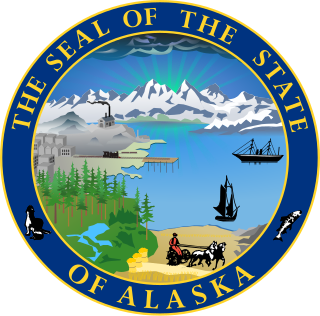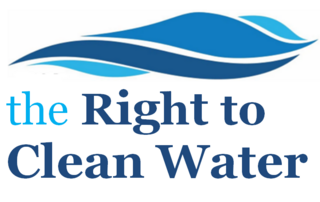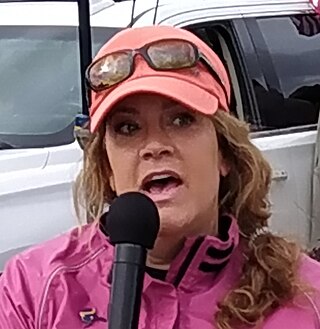A recall election is a procedure by which, in certain polities, voters can remove an elected official from office through a referendum before that official's term of office has ended. Recalls appear in the constitution in ancient Athenian democracy. Even where they are legally available, recall elections are only commonly held in a small number of countries including Peru, Ecuador, and Japan. They are considered by groups such as ACE Electoral Knowledge Network as the most rarely used form of direct democracy.

A popular initiative is a form of direct democracy by which a petition meeting certain hurdles can force a legal procedure on a proposition. The hurdles the petition has to meet vary between countries, typically signatures by a certain number of registered voters.
Ballot access are rules and procedures regulating the right to candidacy, the conditions under which a candidate, political party, or ballot measure is entitled to appear on voters' ballots in elections in the United States. The jurisprudence of the right to candidacy and right to create a political party are less clear than voting rights in the United States. However, the U.S. Supreme Court has established in multiple cases that the federal constitution does not recognize a fundamental right to candidacy, and that state governments have a legitimate government interest in blocking "frivolous or fraudulent candidacies". As election processes are decentralized by Article I, Section 4, of the United States Constitution, ballot access laws are established and enforced by the states. As a result, ballot access processes may vary from one state to another. State access requirements for candidates generally pertain to personal qualities of a candidate, such as: minimum age, residency, and citizenship. Additionally, many states require prospective candidates to collect a specified number of qualified voters' signatures on petitions of support and mandate the payment of filing fees before granting access; ballot measures are similarly regulated. Each state also regulates how political parties qualify for automatic ballot access, and how those minor parties that do not can. Fundamental to democracy, topics related to ballot access are the subject of considerable debate in the United States.

In California, a ballot proposition is a referendum or an initiative measure that is submitted to the electorate for a direct decision or direct vote. If passed, it can alter one or more of the articles of the Constitution of California, one or more of the 29 California Codes, or another law in the California Statutes by clarifying current or adding statute(s) or removing current statute(s).
In the politics of the United States, the process of initiatives and referendums allow citizens of many U.S. states to place legislation on the ballot for a referendum or popular vote, either enacting new legislation, or voting down existing legislation. Citizens, or an organization, might start an initiative to gather a predetermined number of signatures to qualify the measure for the ballot. The measure is placed on the ballot for the referendum, or actual vote.

The Alaska Clean Water Initiative (ACWI) of 2008 was a citizens-initiative ballot measure. In Alaska, such measures become state law, if a majority of voters vote in favor of the measure. The ACWI contained regulatory language limiting the release and distribution of "sulfide mining" effluents and products into the environment. In August 2008, Ballot Measure 4, the "Alaska Clean Water Initiative," was voted down in the statewide primary election.
Direct democracy refers to decision making or direct vote a proposal, law, or political issue by the electorate, rather than being voted on by representatives in a state or local legislature or council.

Michael James Dunleavy is an American educator and politician serving since 2018 as the 12th governor of Alaska. A Republican, he was a member of the Alaska Senate from 2013 to 2018. He defeated former U.S. senator Mark Begich in the 2018 gubernatorial election after incumbent governor Bill Walker dropped out of the race. He was reelected in 2022.

Florida Amendment 2, Use of Marijuana for Certain Medical Conditions, is an initiative that appeared on the November 4, 2014, ballot in the state of Florida as a citizen initiated state constitutional amendment.

The 2016 United States presidential election in Alaska was held on Tuesday, November 8, 2016, as part of the nationwide presidential election in which all 50 states plus the District of Columbia participated. Alaska voters chose electors to represent them in the Electoral College via a popular vote, pitting the Republican Party's nominee, businessman Donald Trump, and running mate Indiana Governor Mike Pence against Democratic Party nominee, former Secretary of State Hillary Clinton, and her running mate Virginia Senator Tim Kaine. Alaska has three electoral votes in the Electoral College.

Proposition 1 was a 2018 direct initiative bathroom bill in Anchorage, Alaska. A public vote on the proposition was held on April 3, 2018. It would have made it legal for "any employer, public accommodation, or other person to establish and enforce sex-specific standards or policies concerning access to intimate facilities such as locker rooms, showers, changing rooms, and restrooms." The measure defined the term 'sex' as "an individual's immutable biological condition of being male or female, as objectively determined by anatomy and genetics at the time of birth."

The 2020 United States presidential election in Alaska took place on Tuesday, November 3, 2020, as part of the 2020 United States presidential election in which all 50 states and the District of Columbia participated. Alaska voters chose three electors to represent them in the Electoral College via a popular vote pitting incumbent Republican President Donald Trump and his running mate, incumbent Vice President Mike Pence, against Democratic challenger and former Vice President Joe Biden and his running mate, United States Senator Kamala Harris of California. The Libertarian, Green, Constitution, and Alliance Party nominees were also on the ballot, as was an Independent candidate.
Massachusetts has several forms of direct democracy, allowing for initiative and referendums at the state level and in many municipalities. The recall of public officials is also provided for in many municipalities.

2020 Florida Amendment 4, commonly known as the Think Twice Initiative was a proposed amendment to the Constitution of Florida that failed by 52.47% to 47.53% in the 2020 election on November 3, 2020. The amendment would have required new constitutional amendments to be approved by voters twice in order to go into effect.

The 2022 Alaska House of Representatives elections were held on Tuesday, November 8, 2022, with the primary election on August 16, 2022. Voters in the 40 districts of the Alaska House of Representatives elected their representatives, in conjunction with state senate elections and the biennial United States elections for federal offices.

The 2022 Alaska Senate elections took place on November 8, 2022, with the primary elections being held on August 16, 2022. State senators serve four-year terms in the Alaska Senate, with half of the seats normally up for election every two years. However, because most districts were greatly changed in redistricting, elections were held for 19 of the 20 seats; the only exception is District T, represented by Democrat Donny Olson, which was mostly unchanged in redistricting and thus did not have an election. Some senators were elected to serve four-year terms, while others would serve shortened two-year terms.
A top-four primary or top-four ranked-choice voting is an election method using a nonpartisan blanket primary where up to four candidates, those with the most votes, advance from a first round of FPTP voting, regardless of the political party. The round two (general) election, held some weeks later, uses instant-runoff voting to confirm a winner among the top set of candidates.

Florida Right To Clean Water.org is a grassroots, volunteer, nonpartisan organization formed to place an amendment to the state constitution by citizens before the voters of the U.S. state of Florida, using a direct initiative that will give citizens of the state a right to clean and healthy waters. The organization consists of volunteers. They gather signatures of registered voters on petitions confirming the desire of the voter that the amendment be placed on the ballot by the secretary of state so all Florida voters may decide whether to adopt the amendment. The petitions are submitted to local election officials by the volunteers. Every county in the state has a supervisor of elections who reviews the submitted petitions for that county in order to determine that they are completed correctly and that the signers are registered voters in that county. The supervisor reports the numbers that have been verified to state officials.
In the 2024 United States presidential election, different laws and procedures govern whether or not a candidate or political party is entitled to appear on voters' ballots. Since election processes are decentralized by Article I, Section 4, of the United States Constitution, these laws are established and enforced by the states. Additionally, there are often different requirements for primary and general elections, and requirements for primary elections may additionally differ by party.

Jamie del Fierro Allard is an American politician from Alaska serving as a member of the Alaska House of Representatives since 2023 representing District 23 which covers an area East of Anchorage. Allard is a U.S. Army veteran and was a member of the Anchorage Assembly.











